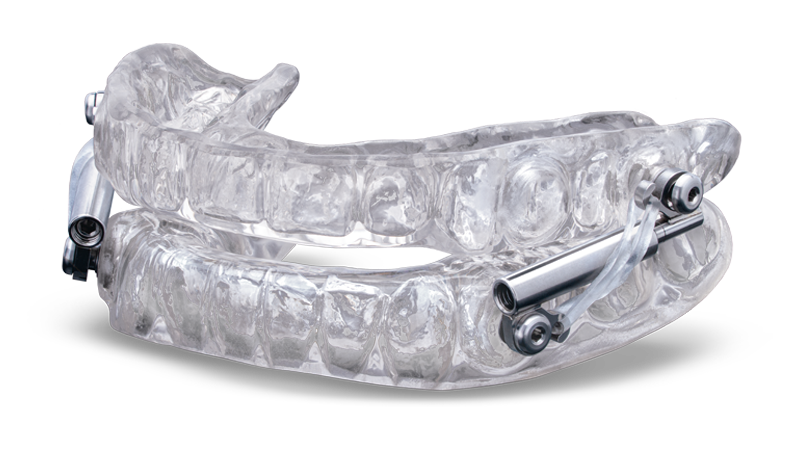To stop snoring during sleep, try changing your sleep position and avoid alcohol before bed. Ensure regular sleep patterns and consider anti-snoring devices or seek medical advice if necessary.
Snoring is a common problem affecting millions globally, disrupting sleep quality and affecting overall health. Finding effective ways to address this issue is crucial for both snorers and their partners. With the right approach, it’s possible to reduce or eliminate snoring and improve sleep.
Crafting a strategy involves lifestyle adjustments and possibly medical intervention, catering to the specific needs of each individual. This introduction paves the way for a discussion on straightforward methods to mitigate snoring, aiming at restoring peaceful nights and enhancing well-being.

Credit: newwestlab.com
Identifying The Causes Of Snoring
Understanding why you snore is vital to find the right solution. Many factors contribute to snoring, ranging from lifestyle choices to medical conditions. Identifying the cause is the first step to a quieter, more restful night.
Examining Lifestyle Factors
Lifestyle choices often lead to snoring. Little changes can create big differences. Consider the following:
- Weight: Extra pounds can press on your throat.
- Alcohol consumption: It relaxes throat muscles, narrowing the airway.
- Sleeping position: Back sleeping can worsen snoring.
- Smoking: It irritates and inflames airways.
Recognizing Medical Conditions
Snoring can signal underlying health issues. Look out for these conditions:
| Condition | Symptoms | Impact on Snoring |
|---|---|---|
| Allergies | Runny nose, sneezing, itchy eyes | Blocks nasal passages |
| Sleep Apnea | Loud snoring, daytime sleepiness | Causes frequent breathing pauses |
| Nasal issues | Difficulty breathing through nose | Forces mouth breathing |
| Enlarged tonsils | Sore throat, difficulty swallowing | Obstructs airway |

Credit: glidewelldental.com
Lifestyle Changes For Quieter Sleep
Snoring not only disrupts sleep for you and your partner, but it can also be a sign of deeper health issues. Thankfully, specific lifestyle adjustments can pave the way for quieter, more restful nights. Delve into how sleeping posture, weight management, and diet play crucial roles in your nocturnal soundscape.
Adjusting Sleeping Positions
Changing how you sleep can reduce snoring. Lying on your back often leads to snoring. This is because it allows the tongue and soft tissues to obstruct your airway. Instead, try sleeping on your side. This simple switch can open up your airway and make breathing easier.
- Use a body pillow to maintain side sleeping.
- Elevate the head of your bed slightly.
Weight Management Strategies
Excess body weight contributes to snoring by adding pressure on the neck, squeezing the airway. Even a small reduction in weight can make a significant impact. It’s not about quick fixes, but making lifelong healthy choices.
- Exercise regularly – creates tone in the muscles, including those around the airway.
- Eat smaller portions – avoids overloading the digestive system before bed.
Diet And Hydration Tips
| Do’s | Don’ts |
|---|---|
|
|
Stay hydrated. Dry throat and palate contribute to snoring. By drinking plenty of fluids, you ensure tissues stay moist, which can lessen snoring. A well-hydrated body finds breathing easier. Align your diet with your sleep goals, and watch the difference unfold.
Medical Interventions And Remedies
Scouring the landscape of medical interventions and remedies uncovers a trove of options to combat snoring. For many, snoring is no trifling matter; it disrupts sleep patterns and affects overall health. Delving into the scientific advances in this area reveals a myriad of paths one might take to achieve that much sought-after uninterrupted night’s rest. Let’s dissect these choices, focusing on devices, surgical interventions, and the pivotal role of sleep studies.
Exploring Anti-snoring Devices
Countless individuals find solace in anti-snoring devices, which provide immediate relief without the need for surgery. These gadgets range from nasal strips that open the nostrils to mouthguards that keep airways unobstructed. To determine the best fit, it’s wise to consult with a healthcare professional and consider the following:
- Nasal strips and dilators: Easy to use and non-invasive.
- Mandibular advancement devices: Custom-fitted by dentists to reposition the jaw.
- Tongue stabilizing devices: Grip the tongue to keep it from blocking the throat.
- CPAP machines: Predominantly used for sleep apnea, but also assist with snoring.
Surgical Options For Severe Cases
Surgery may be on the cards for those grappling with severe snoring or underlying conditions such as sleep apnea. Surgeons can perform various procedures to remove excess tissue, correct deviated septums, or shrink problematic areas. Key surgical interventions include:
- Uvulopalatopharyngoplasty (UPPP): Trimming the throat tissue.
- Septoplasty: Straightening the nasal septum.
- Genioglossus advancement: Opening the lower throat.
- Pillar procedure: Stiffening the soft palate.
The Role Of Sleep Studies
A thorough analysis of sleep patterns clarifies the severity and causes of snoring. Sleep studies, also known as polysomnography, are non-invasive overnight exams which monitor breathing, brain activity, and other physiological functions. Insights from these studies inform the correct course of action, which might include:
- Lifestyle changes: Like weight loss or sleep position adjustments.
- Prescribing CPAP or other devices: Tailored to the individual’s needs.
- Considering surgical solutions: When non-invasive methods prove ineffective.

Credit: www.amazon.com
Frequently Asked Questions For Five Steps To Stop Snoring During Sleep
What Causes Nightly Snoring?
Snoring is often caused by the relaxation of throat muscles leading to narrowed airways during sleep, which can be exacerbated by factors like obesity, alcohol consumption, and nasal congestion.
Can Lifestyle Changes Reduce Snoring?
Yes, implementing lifestyle changes such as losing weight, avoiding alcohol before bed, and changing sleep positions can significantly reduce snoring.
Are There Effective Devices For Snoring?
Various devices, including CPAP machines, anti-snoring mouthpieces, and nasal strips, have been proven effective in reducing or eliminating snoring for many individuals.
Conclusion
Snoring can disrupt sleep for both the snorer and their partner. But there’s hope. Our five-step guide offers practical solutions. From lifestyle tweaks to bedtime routines, change is possible. Commit to these strategies and embrace a quieter, more restful night.
Sweet dreams await when snoring is put to rest.
Your article helped me a lot, is there any more related content? Thanks!
Thnx
I don’t think the title of your article matches the content lol. Just kidding, mainly because I had some doubts after reading the article.